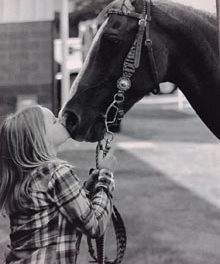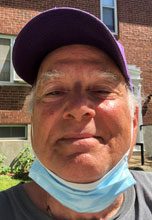 The experience of acting as the primary caregiver for an abusive father forms the basis of an article by USCB Sociology Professor Deborah Cohan that appeared in the April 2016 issue of Utne Reader.
The experience of acting as the primary caregiver for an abusive father forms the basis of an article by USCB Sociology Professor Deborah Cohan that appeared in the April 2016 issue of Utne Reader.
“The Gold Pen,” a piece of creative nonfiction, was excerpted from an essay selected as a chapter in a book entitled Letting Go: Feminist and Social Justice Insight and Activism, edited by Donna King and Catherine Valentine. The book was published by Vanderbilt University Press in September 2015.
“It’s a memoir, a braided story of caregiving for my father at the end of his life,” Dr. Cohan says. “I say ‘braided’ because it’s the story of caregiving and abuse. What it meant to take care of a father who had been emotionally, psychologically and financially abusive to me and my mother.”
An Assistant Professor of Sociology at USCB, Dr. Cohan’s research focuses on domestic and sexual violence, creative nonfiction, how sociology and memoir intersect, and related topics. She has done domestic violence work in three states and has served as an expert consultant in legal cases involving sexual violence.
“The Gold Pen” is the second chapter from Dr. Cohan’s own as yet unpublished book to appear in print. “Sugar,” the first chapter, was published in The Journal of Life Writing in February 2014.
The story of the gold pen began in 2004 when Dr. Cohan assumed the role of caregiver after her father fell and broke his hip. Her parents had divorced recently and she was their only child. Once an executive with Stern Advertising in Cleveland, Dr. Cohan’s father had climbed the corporate ladder over a 50-year career, advancing from copywriter to the agency’s senior vice president. His major claim to fame was creating the memorable tagline for a Hawaiian Punch commercial: “How would you like a nice Hawaiian Punch?”
“My father had this nice Mark Cross gold pen that so many business executives have to sign contracts and deals and do big, flashy things,” she says. “And, when he died, I was coming across different things in cleaning the house. And one of the things that was most important to me was this gold pen. I felt tethered to this pen. The pen had significance; it was sort of a symbol of his creativity and his doing interesting work in the world. While my dad was abusive, he was also an adoring, larger-than-life, funny, brilliant guy who was an absolutely amazing person.
“In a way, the chapter is about reconciling all of that and also about finding my own voice, my own sense of creativity. The thing about the gold pen is that I lost it. I lost the pen.”
Her father’s death was one of several emotional upheavals Dr. Cohan experienced in the span of one month in 2012. In July of that year she moved to Beaufort to join the faculty at USCB. On Aug. 13, her father died. On Aug. 16, she began teaching at the university.
When she moved from Boston, Dr. Cohan had 149 boxes, all properly labeled. But when she unpacked in Bluffton, everything was there—except the gold pen.
“My mind was racing a mile a minute back in Boston,” she says. “I was trying to get out of there. I had just gotten a divorce and now I was moving my whole life across the country. The thing that was neat about the essay was that I was able to step back and see myself as a character. Then you also see the new things that happened: I met this man and fell in love with him.
“All of these different, mundane objects that we rely on to live our lives . . . essentially each object stands as a symbol of a much larger issue. In the essay entitled “The Dinner Table,” I ask what do we bring to the table. What memories do we hold? What do we hold onto and what do we let go of? I’m using the object of a gold pen to meditate on the idea of letting go.”
In addition to the Utne Reader article, Dr. Cohan has contributed articles to five academic publications over the past year:
• “The Grief of a Teacher: Trauma, Dis/connection and Institutional Paradox” appeared in the September 2015 issue of The E-Journal of Public Affairs, Special Issue on Higher Education’s Role in Preventing and Responding to Gender-Based Violence.
• “Learning for a Change: Rage and the Promise of the Feminist Classroom” appeared in Teaching Sex and Gender in Contemporary America, edited by Kristin Haltinner and Ryanne Pilgeram. The book was published by Springer Press in May.
• “It’s S’More Than All That!: Gender Benders and the Creation of Feminist Community at USCB, authored with Kimberly Cavanagh, Ph.D., is scheduled to appear in Feminist Teacher this year. Dr. Cavanagh is an Assistant Professor of Anthropology at USCB.
• “Black Women’s Rage and Activism” will appear in Violence Against Black Bodies, edited by Sandra Weissinger, Dwayne Mack and Elwood Watson. The book is to be published by Routledge, the world’s leading academic publisher in the Humanities and Social Sciences.
• A chapter entitled “Violence, Rage, Creativity and the Re-birth of the Self” has been accepted for publication in an anthology entitled Violent States: Individual to International Creative States: Overcoming Violence. The book is scheduled for release by Jessica Kingsley Publishers next year.
Dr. Cohan was invited in April to become a monthly blogger for Psychology Today. Her blog is entitled Social Lights.







